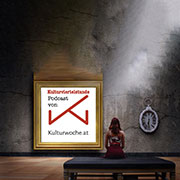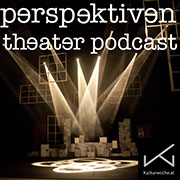A dialogue between Greta Kogler and Lina Reisinger about the This Human World Festival opening film Until Tomorrow (Ta Farda) which is a film of social political importance.
A look-back to This Human World Film Festival
As a couple of months have gone by, we want to look back on the 15th edition of the This Human World Film Festival as it continues to put a spotlight on human rights issues and contributes to educate and sensitize about inequalities through awareness work. The selected films were spread across 5 sections within the various topics of environmental change // changing environment to new work realities, gender shift // equal rights, conflict // collective activism and include the new program old myths // new antisemitism.
Dialogue about Until Tomorrow (Ta Farda)
In the following dialogue Greta Kogler and Lina Reisinger are talking about the This Human World festival's opening film Until Tomorrow (Ta Farda) which was a very relevant choice in regard to current affairs. With this film director Ali Asgari engages the viewer into the life of an Iranian mother as she is forced to hide her illegitimate child from her own parents and is looking for shelter in the city of Teheran.

Out of the many topics the film and the characters touch on, which one stayed with you? / What element of the film resonated most with you within the context of This Human World Festival?
Greta Kogler: What truly stood out beside the story itself, a young mother running through Teheran being forced to hide her baby in order to avoid social abandonment, was the gender representation in the film. Most male protagonists represent the dehumanizing organization of the Iranian state, however, the male director Ali Asgar integrated one male character which worked in favor of the young women. A statement to express not all Iranian men support the absurd laws oppressing women’s freedom and regulating their bodies; a figure of solidarity or a symbol of alliance so to say. Nonetheless I wondered if a female director would have felt the need to incorporate such a character or if they would see it as too fictitious and far from reality to be claimed authentic and plausible.
What stood out for you regarding the portrayal of the female characters created by the male director Ali Asgar? What were your thoughts on the male characters in the story?
Lina Reisinger: What stood out for me initially, was how little support and understanding there is for one another in the female community. Every woman seems threatened to the bone by the patriarchal system, the power in place that could make them all disappear, or worse rape and torture them. A society that is so afraid, that there is no place for sisterhood and togetherness and understanding, as fear is the great ruler. That being said, at the same time I was in awe of the friendship of our main two female protagonists. Neither one was backing out of this overwhelmingly stressful and scary situation, on the contrary, they held their hands through this whole, seemingly endless day. The baby being a girl heightened that feeling of connection between the women. The male characters of the movie did not leave too much of an impression, I believe, because they did not surprise us (as an audience), at least most of them didn’t. Watching them, me as a woman, I was anticipating their actions, gruel and horrid, unreliable and abusive. The only two male characters that stood out to me were Atefeh’s male friend, who tried to convince his wife to hide the baby and the ambulance driver, who helped them, even if unknowingly, to escape the hospital grounds. Those two actions were indeed surprising.
What does the title Until Tomorrow represent, maybe even on a macro scope or within the frame of the This Human World festival?
Greta Kogler: The title of the film really catches the discrepancy this single mother is in, I think. In the loneliness of her hidden life she has to weigh risk for the well-being of her child. If she finds a place to leave her baby for only one night to hide it from her parents, she will not be neglected and socially exiled which would alter the trajectory of both their lives for good. On the other hand she has no social support as it is and with an ‘illegal’ child every other person is a threat to both her and her baby girl. No allies, only omnipresent danger of being arrested. Until Tomorrow really brings forward the urgency of sheer survival women in Iran have to deal with on a daily basis. Only to make it to the next day. Every step they take and every decision they make could become an existential threat and as portrayed in the film, sometimes there is no ‘better’ option, there is no safer place. And so all that is left to do is be strong and do as your heart says for no one could take your integrity from you. This is what we get to witness in the women’s movement in Iran right now.

Is there anything you would have liked to get more context on, anything that was completely new or foreign to you?
Lina Reisinger: I believe having more context would be necessary if the movie was shown to a younger generation, which I think would actually be a great idea and should be considered for schools. To me … well, to be totally honest, having a very limited knowledge of Iran and the systems in place, I was very surprised to learn that an “Illegitimate” child (a child that is not conceived by a married couple) is denied any documents, insurance, healthcare and education. I was not aware that the child was punished as well as the mother. Also being confronted with the very limited rights that women have and the dependency that lies beneath them, was shocking. The shere impossibility of getting a room in a hotel as a single woman, or staying at a friend's place or getting any kind of help in general, was horrifying. This is a very sensitive topic and I think we have to be very careful as to understanding our own privileges that we have come to take for granted for the most part. Then on the other hand - there are lots of parallels that I can relate to even living in such a different reality from the protagonists.
What filmic elements were predominantly used throughout the film?
Lina Reisinger: The camera was very steady and stayed with our protagonist the entire time. The frame seemed too small, her body trapped in it and the focus on her almost unbearable. The surroundings seemed like a blur, something that is going on in the background and while it all seemed very hectic and stressful, the image always suggested that the stress and tension and fear inside Fereshteh’s body was so much more present and real than any surrounding could be. Filmically that was a genius move. WE as an audience can not get away from her, just like she can not get away from the situation she is facing.
Even though the film tells a very specific story in a very specific setting, what were the universalities that allow for a non-specific audience to relate?
Lina Reisinger: Good question. Well one thing I noticed is that the movie ends the same way it started: Fereshteh and her baby are safe at home. Everything that unfolds in between is about Fereshteh’s fear of standing her ground and protecting the person that is most important to her - she undergoes extreme threats to her and her baby by covering the truth. Obviously, this is within the context of the harsh reality that she finds herself born into and the systems that restrict her freedom. It seems as if in the end, she realizes what she is running from and is able to decide anew. There is this broader theme of fear acting as an accelerator for one's action when really trust and confidence should be the core emotions to follow. Listening to your intuition, like Fereshteh ends up doing (obviously this is easy to say from the outside western perspective). Another universality I can find within the fabric of the story is the friendship that is portrayed. Showing a sense of belonging and trust in a very unsafe reality. A place and a person to lean on, to share and be vulnerable with makes both protagonists stronger and able to deal with even the most extreme of situations. An obvious one to me is the corruption that is portrayed by the patriarchal structure - it numbs the people living in it and serves only the ones on top. Overlooking the ones that need protection the most. I think this is a theme that most people are able to relate to. Until Tomorrow (Ta Farda) is a film of social political importance, an insight into very real realities, which to us might seem like distant ideas of a foreign land or a forgotten past. Please watch it, if you have a chance and start a conversation. //
Text: Lina Reisinger and Greta Kogler
Photos: MPM Premium
Gefällt Ihnen der Artikel? Jeder Beitrag zählt!
paypal.me/gylaax
Kulturwoche.at ist ein unabhängiges Online-Magazin, das ohne Förderung von Bund/Stadt/Land bzw. Großsponsoring auskommt.













